Next Generation Communications
Since the introduction of 5G, the telecommunications industry has been particularly focused on optimizing system operations, sustainability and user experiences. Beyond communication performance improvements such as data rates and latency, there is an urgency to reduce operating costs, enhance energy efficiency, expand service coverage and introduce innovative technologies such as AI technology. Based on these market and technology trends, the telecommunications industry and standardization organizations have been researching 6G since 2020. In 2030, the 6G technology standards are expected to be finalized — following candidate technology development, evaluation and consensus-building processes.
5G-Advanced will provide further enhanced 5G performance and incorporate AI to support new services and use cases, and it is expected to serve as a foundation for evolving into 6G ultimately. In the 6G era, new services such as immersive extended reality, digital twins, massive communication, ubiquitous connectivity, and fixed wireless access are expected to emerge.
Samsung Research aims to enhance future-proof and sustainable user experience by developing AI integration throughout the entire communication network and sustainable communication technologies under three themes: AI-native, sustainable network, ubiquitous coverage to meet changing market requirements. Samsung Research will continue to lead global standardization efforts and prepare for the 6G era while incorporating lessons learned from 5G commercialization and adapting to new market needs.
Our vision is to realize the AI integration into communication systems by combining Samsung Research's expertise in communication technology with its H/W such as radio unit and modem, S/W and AI capabilities. We also aim to build future communication ecosystems such as 5G-Advanced and 6G, leading the standards
Samsung Research is researching and standardizing core technologies for 5G-Advanced and 6G such as AI-native RAN, energy-efficient networks, coverage expansion, etc.
We are also developing high-efficiency RAN S/W capable of supporting multi-generation simultaneously through S/W innovation.
In addition, we are developing modem chips that can support 5G-Advanced and 6G.
White Papers
6G Vision

Our vision for 6G is to bring future-proof and sustainable user experience to every corner of life.

6G Spectrum

We explore how to expand the boundaries in spectrum for 6G.

XDD (Cross Division Duplex)

XDD (Cross Division Duplex) is one of the key technologies that Samsung is proposing as part of Rel-18 NR (5G-Advanced).

About 5G
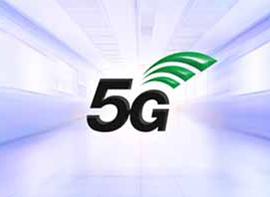
In an era where 4G LTE is already an integral necessity in our lives, what is 5G? How will it change our lives? What can we expect from it?



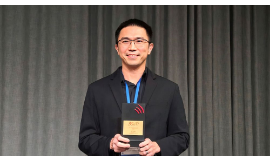
![[Blog] Coherent Joint Transmission (CJT): High-Capacity Enabler for 6G](https://gcg-stage-cdn-v2.stage.codeground.org/resources/383eb859ab/AZwb1ZHaAU0AUNWM.png)
![[Blog] 6G AI/ML for Physical-layer: Part II - CSI compression with JSCM](https://cdn.codeground.org/resources/d525b3331e/AZtnVt16AR0AUGpT.png)
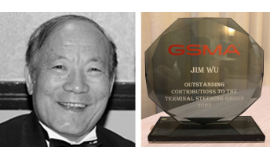
![[Blog] Reimagining Wireless Channel Modeling with Generative AI](https://cdn.codeground.org/resources/3d605f1cd8/AZrhnolaAHUAUGpT.png)
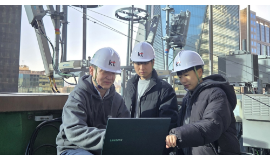
![[Blog] Integrated Sensing and Communication (ISAC): New Monetization Opportunities for 5G and Beyond](https://gcg-stage-cdn-v2.stage.codeground.org/resources/3d605f1cd8/AZrs132qANMAUNWM.png)
![[Blog] IEEE 802.11bn (Ultra-High Reliability (UHR), Wi-Fi 8)](https://gcg-stage-cdn-v2.stage.codeground.org/resources/168e1e6a89/AZq5h4waAFkAUNWM.png)
![[Blog] CSA Matter 1.5 Release: Introducing support for Cameras](https://gcg-stage-cdn-v2.stage.codeground.org/resources/168e1e6a89/AZrCqSv6AIgAUNWM.png)
![[Blog] Beyond Heuristics: Forging the AI-Native RAN with AI L2 Radio Resource Scheduling](https://cdn.codeground.org/resources/168e1e6a89/AZq9tIJaAgQAUGpU.png)
![[Blog] FiRa 4.0 Specification Release and Certification Program launching](https://gcg-stage-cdn-v2.stage.codeground.org/resources/a0bf0b9d6f/AZqfcBIKACwAUNWM.png)
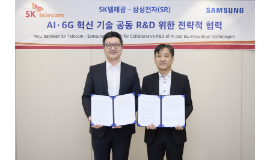

![[Next-Generation Communications Leadership Interview ④] Ushering in the 6G Era With AI Innovation and Global Partnerships](https://gcg-stage-cdn-v2.stage.codeground.org/resources/f327bd49d3/AZon7y7qAOMAUNX5.png)
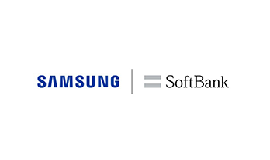
![[Blog] Enable JSCC-based CSI Feedback for B5G/6G: Design, Standardization, and Prototype](https://gcg-stage-cdn-v2.stage.codeground.org/resources/73a75f14e1/AZnqeNdqAHEAUNX5.png)
![[Blog] A Graph Clustering-Based Resource Reservation Solution for Low-Latency Networks in Massive MIMO Systems](https://gcg-stage-cdn-v2.stage.codeground.org/resources/73a75f14e1/AZnqL6caAGIAUNX5.png)
![[Blog] UE-Centric Distributed MIMO for 5G and Beyond - Benefits, Challenges, and Promising Solutions](https://gcg-stage-cdn-v2.stage.codeground.org/resources/73a75f14e1/AZngaklaAEQAUNX5.png)
![[Next-Generation Communications Leadership Interview ③] Shaping Tomorrow's Networks With AI-RAN](https://gcg-stage-cdn-v2.stage.codeground.org/resources/e7cafa961d/AZlRcJNqAAoAUNXr.png)
![[Blog] Zero Trust Architecture for 6G](https://gcg-stage-cdn-v2.stage.codeground.org/resources/8b11029118/AZkIA_9aAxYAUNWW.png)
![[Blog] AI-powered Network-level and User-level Optimization: Challenges, Real-World Results, and the Path Forward](https://gcg-stage-cdn-v2.stage.codeground.org/resources/a32b0c70ee/AZimJ9ZaAmUAUNWW.png)
![[Blog] NTN and TN networks for the 6G era: technology overview and regulatory challenges](https://cdn.codeground.org/resources/a32b0c70ee/AZihAJmaAuAAUGrV.png)
![[Next-Generation Communications Leadership Interview ②] Charting the Course to 6G Standardization With a Unified Vision](https://gcg-stage-cdn-v2.stage.codeground.org/resources/a32b0c70ee/AZibZgWaAiYAUNWW.png)
![[Blog] 6G Vertical: New Start Point of Vertical Integration](https://cdn.codeground.org/resources/410bca8eee/AZg2AqtKAWEAUGrV.png)
![[Blog] 6G AI/ML for Physical-layer: Part I - General Views](https://cdn.codeground.org/resources/7f1fed9383/AZhUxTXqAcoAUGrV.png)
![[Blog] Energy Saving for 6G Network: Part II, From Always-ON to Smart-ON](https://gcg-stage-cdn-v2.stage.codeground.org/resources/410bca8eee/AZg5z7GqAW8AUNWW.png)
![[Blog] 6G MIMO: Toward Intelligent and Energy-Efficient Radio](https://cdn.codeground.org/resources/410bca8eee/AZg2AxBKAWQAUGrV.png)
![[Next-Generation Communications Leadership Interview ①] 'Standardization Shapes the Future of Communications'](https://gcg-stage-cdn-v2.stage.codeground.org/resources/74ea62cff6/AZgLWb_qAUIAUNWW.png)
![[Blog] Energy Saving for 6G Network: Part I](https://cdn.codeground.org/resources/410bca8eee/AZg5w02aAZkAUGrV.png)
![[Blog] Quantum Security for Future Communication Networks: Standards Perspective](https://cdn.codeground.org/resources/93fdf44c4b/AZfJYUnKAMYAUGrV.jpg)
![[Blog] Physical-Layer Innovations Driving 6G Evolution](https://gcg-stage-cdn-v2.stage.codeground.org/resources/fe899de80e/AZevZMOqAK8AUNWW.png)
![[Blog] User Data Privacy and Consent Management in 3GPP](https://gcg-stage-cdn-v2.stage.codeground.org/resources/fe899de80e/AZeaXQA6AIIAUNWW.png)

![[Blog] From AI Concept to Real World: AI-powered Modem for Next Samsung Cellular Networks](https://gcg-stage-cdn-v2.stage.codeground.org/resources/12b634256a/AZcKJcMqAC8AUNW5.png)

![[Blog] AI-Driven Modem Innovations for Shaping the Future RAN](https://cdn.codeground.org/resources/2c339caef2/AZZqJxVaAfsAUGqS.png)
![[Blog] Mission Critical Communications Over 5G](https://gcg-stage-cdn-v2.stage.codeground.org/resources/7627a84697/AZX6GbxaARYAUNVK.jpg)

![[Blog] SRCB's Non-Uniform Constellation Scheme in GLOBECOM 2024 Conference](https://gcg-stage-cdn-v2.stage.codeground.org/resources/3419ee9fbf/AZWisV3KAFwAUNVK.png)



![[Blog] Deep Learning for CSI Feedback: One-Sided Model and Joint Multi-Module Learning Perspectives](https://cdn.codeground.org/resources/50d2db752b/AZSQ4WvqAIsAUGo7.png)
![[Blog] FiRa Consortium Release 3.0 - UWB Core Specification and Certification Program Launch](https://cdn.codeground.org/resources/50d2db752b/AZSHtNJqAG8AUGo7.png)






![[Blog] Technology Innovation towards mmWave Fixed Wireless Access](https://gcg-stage-cdn-v2.stage.codeground.org/resources/5471502d58/AZKJooXKAbcAUNWx.png)

![[Blog] Transitioning Cellular networks towards Post Quantum Cryptography](https://cdn.codeground.org/resources/fb7ab3e5c2/AZG7g1JaAJIAUGoJ.png)
![[Blog] How to achieve automated, standards-aligned Network Slices design and allocation](https://gcg-stage-cdn-v2.stage.codeground.org/resources/ecc5c6c552/AZF9pUYKAIUAUNWx.png)
![[Blog] Upper Mid-Band Spectrum for 6G: Opportunities and Key Enablers](https://gcg-stage-cdn-v2.stage.codeground.org/resources/909a85bea3/AZEvLPzKAbgAUNUW.png)


![[Blog] CSA Releases Matter 1.3 Specification and SDK for Smart Home IoT Standardization](https://cdn.codeground.org/resources/4632490a18/AY9bmYMqATQAUGqr.jpg)
![[Blog] A Signature Based Approach Towards Global Channel Charting with Ultra Low Complexity](https://gcg-stage-cdn-v2.stage.codeground.org/resources/78bfb2e890/AY7MHb0aADYAUNWM.jpg)

![[Blog] AutoMLPoweredNetworks: Automated Machine Learning Service Provisioning for Next Generation Networks](https://gcg-stage-cdn-v2.stage.codeground.org/resources/f78f929fd7/AYyKNenqAFYAUJxP.jpg)


![[Blog] CSA Releases Matter 1.2 Specification and SDK for Smart Home IoT Standardization](https://gcg-stage-cdn-v2.stage.codeground.org/resources/542398c2c4/AYtgjgx6ADIAUJzM.png)
![[Blog] Realizing High Power Full Duplex in Millimeter Wave System: Design, Prototype and Results](https://gcg-stage-cdn-v2.stage.codeground.org/resources/7c903dac44/AYs8cD3KAFkAUJzh.png)
![[Blog] Private 5G in Enterprises – Expanding Opportunities for Vertical Industries](https://gcg-stage-cdn-v2.stage.codeground.org/resources/0fe2dffb4e/AYrPFGjaAAoAUJwx.png)
![[Blog] Compute Platform Considerations for 6G vRAN](https://gcg-stage-cdn-v2.stage.codeground.org/resources/ec2a59b618/AYpAEMdKAOIAUJwc.png)

![[Blog] First Light of the AI/ML Empowered RAN in 3GPP](https://gcg-stage-cdn-v2.stage.codeground.org/resources/1ac8717398/AYnT4ZOKAF4AUJwc.png)
![[Blog] All Set for 6G!](https://cdn.codeground.org/resources/aa250637db/AYkqBEz6AJ0AUGqV.png)



![[Blog] Reconfigurable Intelligent Surface (RIS) and Factors Influencing Its Role in Future Networks](https://cdn.codeground.org/resources/0989e0245e/AYgJyDcaAk0AUGpB.png)

![[Blog] A Beam Scheduling Scheme Based on Real-Time Traffic Distribution in 5G Millimeter-Wave Networks](https://cdn.codeground.org/resources/a2a037ba4b/AYbo-KMKA4cAUGou.png)
![[Blog] User Traffic based Adaptive Beam Codebook Management for mmWave Communication](https://cdn.codeground.org/resources/a2a037ba4b/AYbjhtraA0sAUGou.png)

![[Blog] RAN-CN Convergence Towards the Next-Generation Networks](https://cdn.codeground.org/resources/e7958edbe5/AYVbS45lAy2MMjyh.png)
![[Blog] Full Duplex Communication with Practical Self-Interference Cancellation Implementation](https://cdn.codeground.org/resources/6faa921413/AYUyagqFAgmMMjyh.png)
![[Blog] Towards 6G AI: AI-based Non-linearity Compensator](https://gcg-stage-cdn.codeground.org/resources/0a96b6fc25/AYTmDh46AAoAUJwq.png)
![[Blog] eSIM and the Latest eSIM V3.0 Release](https://cdn.codeground.org/resources/075e6db0bb/AYStTBU1ARyMMjyh.png)
![[Blog] Enabling Intelligent RAN Framework in O-RAN](https://gcg-stage-cdn.codeground.org/resources/b1e847dee7/AYRABIVKACEAUJzg.png)
![[Blog] CSA Releases Matter 1.0 Specification and SDK for Smart Home IoT Standardization](https://cdn.codeground.org/resources/8f824bcee6/AYPPEDrBAkinCbf0.jpg)
![[Q&A] Speakers From SDC22 Share Insights on Samsung's Latest Updates](https://cdn.codeground.org/resources/9e3eb38e42/AYUOrS81AZ-MMjyh.png)


![[Blog] 5G MBS – Unleashing the Potential of Multicast and Broadcast Communication in 5G](https://gcg-stage-cdn.codeground.org/resources/e5bce4f767/AYM2C36aABAAUJwe.png)

![[Blog] Long Road to the IEC EMF Exposure Standards Publication](https://cdn.codeground.org/resources/07c9075560/AYIk2XYUAekpy3UD.png)
![[Blog] FiRa Consortium Releases Common Service & Management Layer and Physical Access Control System Specifications v1.0](https://cdn.codeground.org/resources/48605f9d54/AYHX1l5LBruMogld.png)

![[Blog] A Journey with Stars](https://cdn.codeground.org/resources/1a22cbb75b/AYGpSuS7BfCMogld.png)

![[Blog] Network Slicing – A Service-Oriented Network Architecture for Industry Verticals](https://cdn.codeground.org/resources/819e8237ea/AYEoDnJ7A6CMogld.jpg)
![[Blog] Enabling mmWave Wireless Communications for High-Speed Railway](https://cdn.codeground.org/resources/819e8237ea/AYEok1V7A6aMogld.jpg)


![[Samsung 6G Forum] Preparing for the Future of Next-Generation Communications Technologies : A Virtual Roundtable With Samsung Research's 6G Leaders](https://cdn.codeground.org/resources/dba8d9ec21/AYCZMhPrAieMogld.jpg)

![[Blog] Role of Standards in AI for Wireless](https://cdn.codeground.org/resources/dba8d9ec21/AYCOLn9rAgaMogld.jpg)


![[Blog] The telecommunication network evolution into cloud native architecture](https://cdn.codeground.org/resources/bef7194595/AX7ikgOhAFo1eqLi.png)

![[Blog] FiRa Consortium Makes Available Certification for Fine Ranging MAC and PHY](https://cdn.codeground.org/resources/5a2868dadd/AX3ByS78BKwUTDHa.jpg)



![[Blog] 5G Media Standards: Ultimate Communication beyond Media Streaming](https://cdn.codeground.org/nsr/images/img/blog-thumb29.jpg)
![[Blog] Towards 6G Security: Technology Trends, Threats, and Solutions](https://cdn.codeground.org/nsr/images/img/blog-thumb27.jpg)

![[Blog] Digital Key Development Enables New Era of Security and Convenience](https://cdn.codeground.org/nsr/images/img/blog-thumb25.jpg)

![[Blog] Mission Critical Services Standards: Advancing Critical Communications Across Industries](https://cdn.codeground.org/resources/08e26786ee/AXuk4GdsAMMUTDHa.jpg)


![[Blog] Looking back at 5G to build future 6G in ITU-R](https://cdn.codeground.org/resources/46b4cad31a/AXoxU0SNAiorg-js.jpg)

![[Blog] Open Source Kubernetes for the next level of network virtualization](https://cdn.codeground.org/nsr/images/img/blog-thumb15-OpenSource-5.jpg)
![[Blog] The ONAP Open Source Software community releases its 8th version, with significant contribution from Samsung](https://cdn.codeground.org/nsr/images/img/blog-thumb12-OpenSource-2.jpg)

![[Blog] The Era of 5G, and Standardization of Human Exposure to Electromagnetic Fields](https://cdn.codeground.org/nsr/images/img/blog-thumb11.jpg)


![[Tech IT Talk] Future with 6G and Communication Standards](https://cdn.codeground.org/resources/eddb96cd5f/AXleVK4tAUIrg-js.png)


![[Blog] SPECTRUM – THE INVISIBLE ENTITY WE CAN'T DO WITHOUT](https://cdn.codeground.org/resources/578ae1a0e2/AXhH7h0oAUWVXgrI.jpg)


![[Blog] mmWave 5G: Past, Present and Future](https://cdn.codeground.org/resources/3171984eb8/AXeyvvu4AMSVXgrI.png)
![[Blog] 5G Edge Computing Opens the Era of the Next Version of the Internet](https://cdn.codeground.org/resources/c6e2fdc911/AXce1eRYAIGVXgrI.png)
![[Blog] 5G Application Standards: Enabling B2B Services](https://cdn.codeground.org/resources/7c7a175512/AXaOQvj4ADqVXgrI.png)
![[Blog] Paving the 5G road from concept to reality](https://cdn.codeground.org/resources/fb9e076971/AXYWqpjEAaFnfXKh.png)

![[Interview] Meet the Engineers Responsible for the Global Standardization of UWB](https://cdn.codeground.org/resources/912d4d4413/AXWbeVpEAVBnfXKh.jpg)
![[What's Next in Communications Technology?] ④ Defining the Boundaries of Communications](https://cdn.codeground.org/resources/295ef7ebd3/AXRIjN7UAFBnfXKh.jpg)
![[What's Next in Communications Technology?] ② Becoming the Global Leader in Next-Generation Communications Technologies](https://cdn.codeground.org/resources/7f66e8ffe9/AXNvkom0AKR6VGYz.jpg)
![[What's Next in Communications Technology?] ① Paving the Way for a New World of Experiences](https://cdn.codeground.org/resources/deacea6091/AXNLtsk0AEZ6VGYz.jpg)












